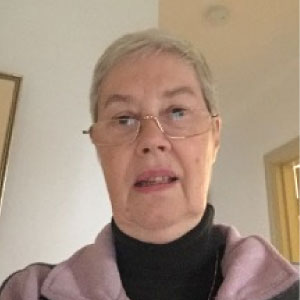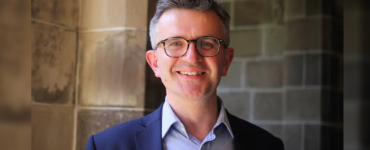I don’t know about you, but I am starting to get really sick of the four walls of my study and my house. My routine is the same each day. I needed to establish a routine in order to put some structure around what is work time, what is relaxation time, and which areas of the house belong to each of these. But it is difficult, in the sameness of the dailiness, as Joan Chittister calls it, to stay positive and motivated.
My doctoral studies are related to exploring the history of an Anglican Benedictine monastery. Monks and nuns have been living the monastic life since early Christianity. Monastic life can look pretty much like being housebound,. I wonder, then, if people have any wisdom to pass on to us from their lived experience? I think so.
In his monastic Rule, Benedict advocates that everything necessary for monastic work be situated within the monastery, because going out “is not at all good for their souls.” (RB 67:7). Benedict doesn’t want his monks to be distracted by anything; he wants them totally focused on their search for God. After all, that is why they came to the monastery. he knows the monks can’t live this life without God’s help, so they are to pray before starting any work so that God might bring it to completion.
Discipline is another aspect of the life. Benedict says that “nothing is to be preferred to the Work of God” (RB 43:3). This implies that the monk works out what his own priorities are, and puts those before other smaller things that might distract or take time away from the real work. Monks made that choice by entering monastic life.
In a similar way, we have made the choice to study when we enrolled our course or research project. None of us were expecting to be studying under COVID-19 restrictions though. Knowing that we made a choice doesn’t make it any easier when you are ready to scream because you are stuck at the same desk day in and day out and there are deadlines to meet. But, as a monk from Camperdown said, “The strength of monastic life does not lie in its devotion but in its constancy.” We may not feel like studying, but the thing is to simply hang in there and stick with it.
It does take a lot of self-talk to keep working in isolation. After all, we are social creatures. Benedict recognised this, and the Rule says that monks are to encourage others. “On arising for the Work of God [about 2 or 3 am], they will quietly encourage each other, for the sleepy like to make excuses.” (RB 22:8).
This is part of our challenge at the moment; being “community” in isolation. The very word ‘monk’ implies an aloneness, an isolation. And every monastic will describe a certain loneliness, as indeed many married people feel. But for the monk, and for each of us pursuing a vocation or call of God, we know we are not alone. Part of the value of being away from other people, is that we have the opportunity to appreciate God’s presence with us in a more focused way. This is the reason monasteries are usually away from cities, and why monastics separate themselves from the everyday bustle of life. We have a great opportunity here, although it is lonely humanly speaking. Our community is in the fact that we, at The University of Divinity, are all on this same journey of ‘seeking God’ (RB 58:7) and fulfilling God’s will (RB 7:20).

Marilyn Hope is a PhD candidate at the University of Divinity, an Anglican Distinctive Deacon, and an Oblate of St Mark’s Abbey for over twenty years. Her thesis, ‘St Mark’s Abbey, Camperdown: Model of Contemplative Life for the Church?’ will document it’s history since 1980, when it was founded by Fr Michael King OSB, and its place within the Anglican Church of Australia.







Add comment